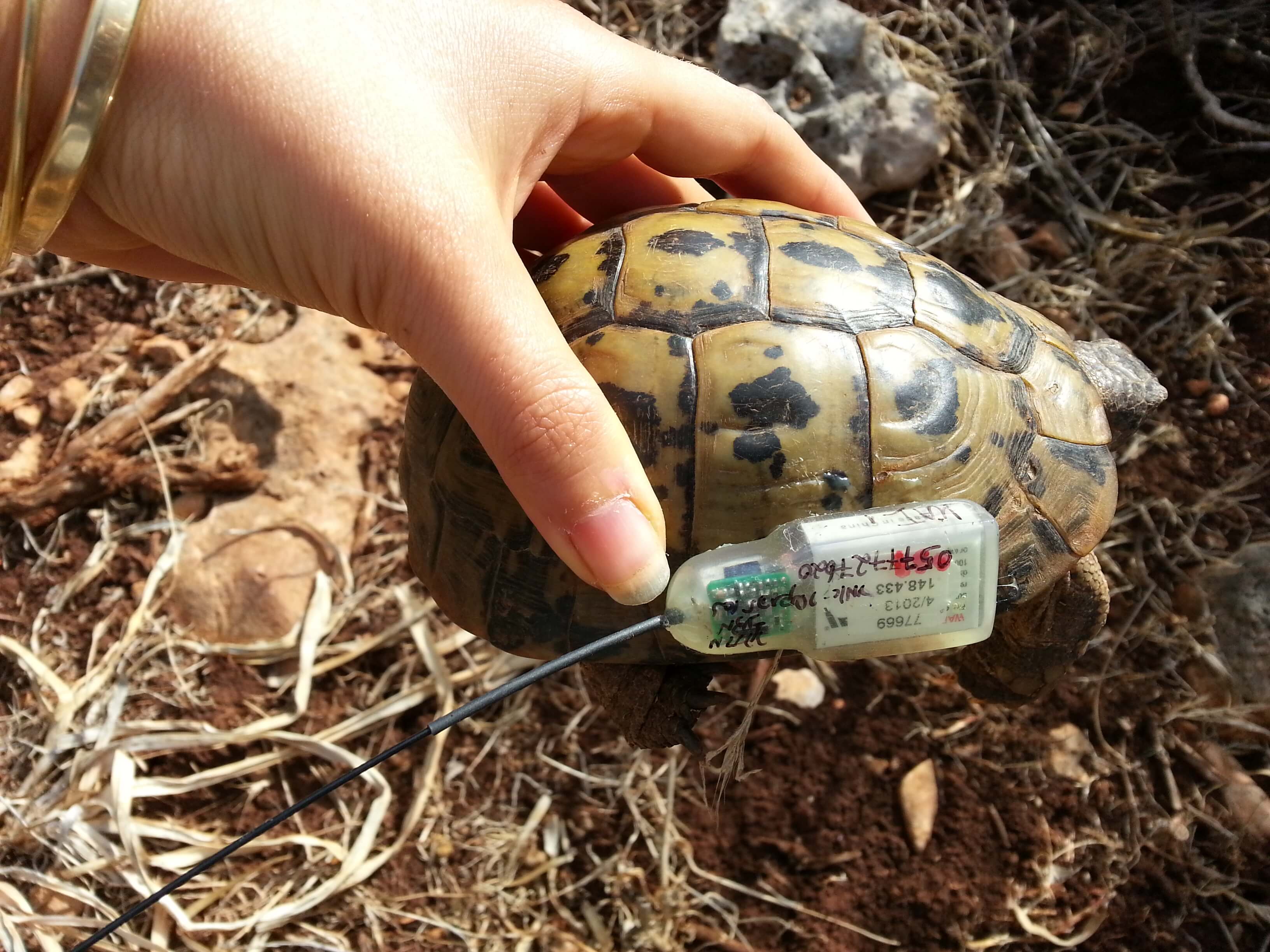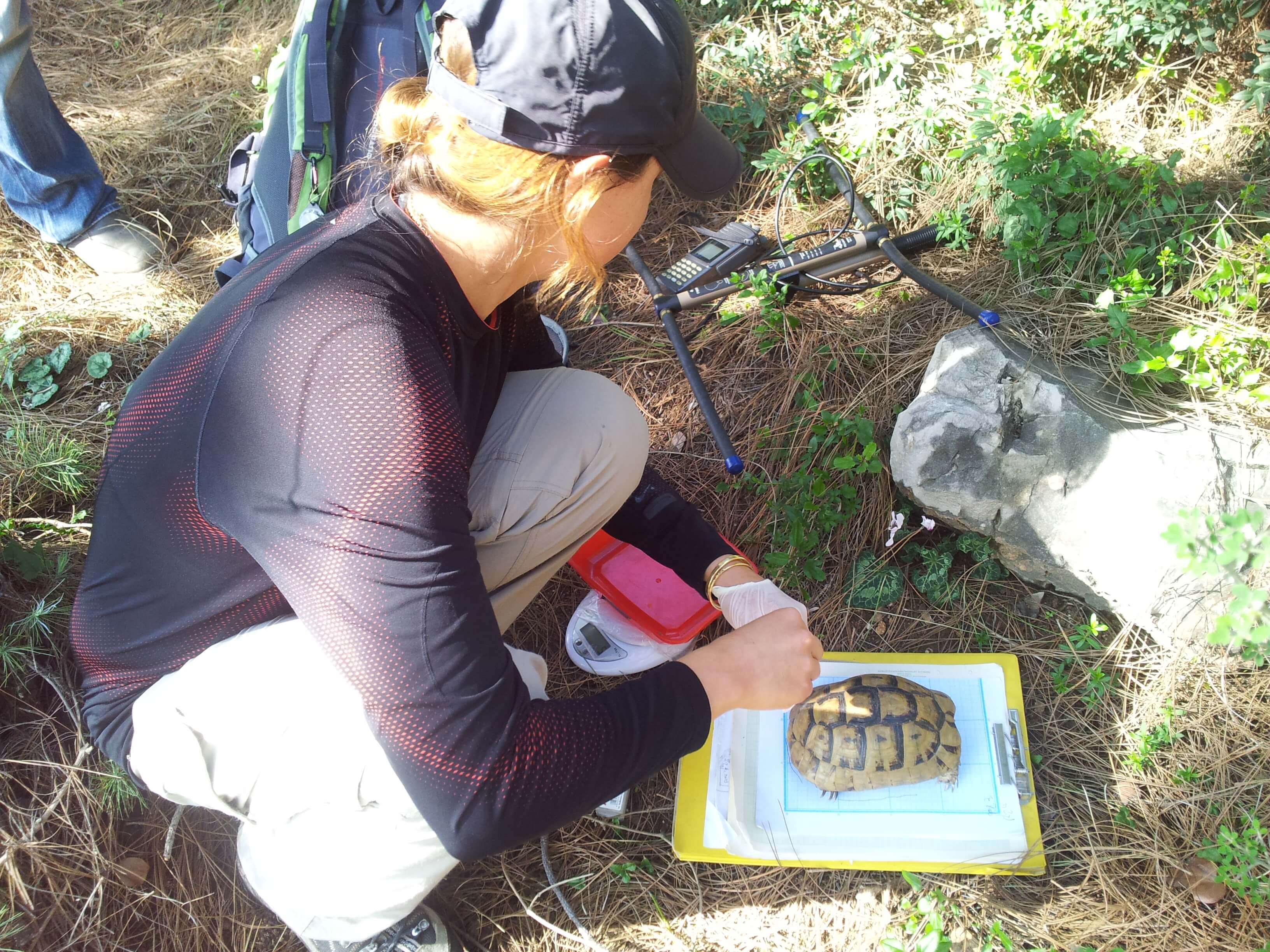"Circle of life" of the species Testudo graeca in Israel: Effect of temperatures on sex determination, and yearly activity patterns, habitats preference and home range utilization
Mai Bernheim
Reptiles are one of the more susceptible groups to suffer from biodiversity loss as a result of human-induced changes in the environment, such as global climate change. There is solid evidence for the influence of global warming on species biology such as range-boundary changes and phenological shifts. Among reptiles there is a particular interest in the effects of climate change on species with temperature-dependent sex determination (TSD), where sex ratio is influenced by the temperature experienced by the eggs during the middle third of the incubation period. Therefore, finding reptiles’ habitat preferences and how temperature affect hatchlings’ sex may provide vital information for managing their populations under climate change scenarios.
Land tortoises are likely to be the most vulnerable to temperature changes, given their low dispersal capabilities, their occurrence in fragmented habitats and that most species are already threatened. The spur-thighed tortoise, Testudo graeca, is a terrestrial TSD tortoise with a circum-Mediterranean distribution. Courtship and mating season begin in March-April, but nesting occurs later between April and June, followed by 3-month incubation period. There is no data from natural environments in Israel on female’s nest habitats. Moreover, little data exists on adults’ seasonal activity patterns, home range and their micro-habitat preferences.




